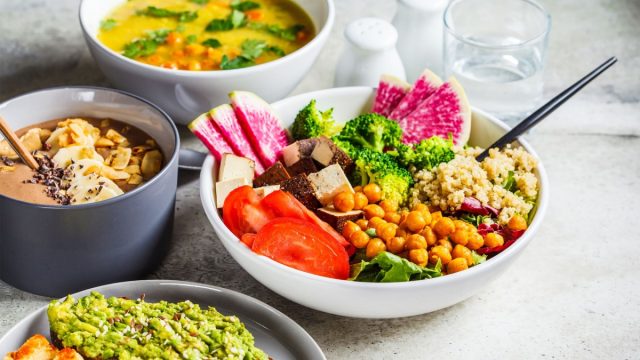Have you ever thought about how what you eat affects the planet? Sure, we know that the reduction of waste and the use of less energy is good for the environment. But have you ever thought about the daily food we intake? Is it healthy enough?
You might be surprised to learn about how much of an impact our diet choices can have on the world around us. Yes – That is why you see every second health expert focuses on healthy options like vegan or plant-based meals.
Let us tell you more exciting things about why a plant-based diet is considered a highly effective option. Just because of the reduction of our environmental footprint? Or there are some things you need to know about.
So, let’s explore the facts together!
What is a Plant-Based Diet?
Contents
Many people think of a strict vegan lifestyle, but a plant-based diet is simply one that prioritizes plant foods like fruits, vegetables, whole grains, nuts, and seeds over animal products.
And no, it doesn’t mean you have to cut out meat completely! In fact, you shift your focus toward plants and away from heavy animal-based eating. This is all you just need to know before making it a complex thing.
So, you can try this diet even with veggie-rich meals for each week. This is all you need to do for your healthy counts!
Why is a Vegetarian Diet More Energy Efficient?
One of the biggest advantages of plant-based is its efficiency. You might be amazed to hear that resources like water, land, and energy in a vegetarian diet are far more efficient than a diet with animal products.
Yes – this is due to the fact that the raising of livestock needs vast amounts of water and land. Not to mention the fuel that is also used in this process to grow animal feed, transport animals, and store meat.
So, if you choose more vegan meals over animal foods then it can be a great approach. This way, you are using far fewer resources than you would on a traditional, animal-based diet. What do you think?
Did you know that in the production of one pound of beef, 1,800 gallons of water is estimated to be used? So, if we compare this amount to produce the same amount of tofu, it will only take about 300 gallons.
Plant-Based Diets & Greenhouse Gas Emissions
As we all know livestock farming is one of the largest sources of greenhouse gas emissions worldwide. You may have heard about “cow burps” that contribute to methane. Yes, it sounds funny, but it’s a serious problem!
Methane is a potent greenhouse gas that is released during the digestion process of cattle and other livestock. This vegetarian diet gas isn’t just a minor detail—it’s a huge contributor to climate change.
In fact, the methane emissions from animal-based diets account for almost 15% of total global greenhouse gases which is more than all transportation emissions combined.
So, if we take a wise step of switching to more plant-based meals then it will help a lot. This way, we can easily cut down on the demand for livestock.
Less Land, More Wildlife Community
One of the often-overlooked benefits of plant-based diets is land use. It is said that about 83% of the world’s farmland is dedicated to livestock. Even though it only provides 18% of global calories. Hence, we get a small portion of this land back to plant foods!
So, if we all decide to choose to eat more vegan or vegetarian meals then it will be a great support to a more sustainable use of our planet’s land. It will also result in less deforestation, especially in biodiverse areas like the Amazon.
Keep in mind that the need for farmland doesn’t just benefit the climate. In fact, it will also allow wild ecosystems to recover and support biodiversity for a healthy planet.
A Simple Way to Make a Big Impact
Remember that a plant-based diet doesn’t have to be all or nothing. In fact, it’s easy to start small. You can make it simple with simple steps like Meatless Mondays or make one meal a day plant-based.
Just know that every step you take will surely contribute to your personal environmental footprint. This way you are not only contributing to a more sustainable planet but also you’re setting an example for others to do the same.
Here are a few easy ways that you must follow to get started:
- You don’t have to go vegan overnight. So you can start with one or two meals each week. Plant-based meals will help you work up the whole day.
- You can also try new plant-based recipes with additional superfood supplements. They will make the process more enjoyable.
- Share what you’ve learned. Sometimes people are unaware of the environmental benefits of plant-based diets and just need a gentle nudge.
Let’s Make a Choice That Matters!
At the end of the day, all we say is that the shift toward plant-based nutrition can make choices that have a lasting impact. You can also take it as an investment in our planet’s future.
This way, you can also benefit your health. Also, can preserve our natural resources and reduce environmental harm.
So, it is highly recommended you take a moment to see what is in your plat for the next time. Keep in mind that small changes lead to big impacts. So, it is better to step together to create a more sustainable and plant-powered future.


